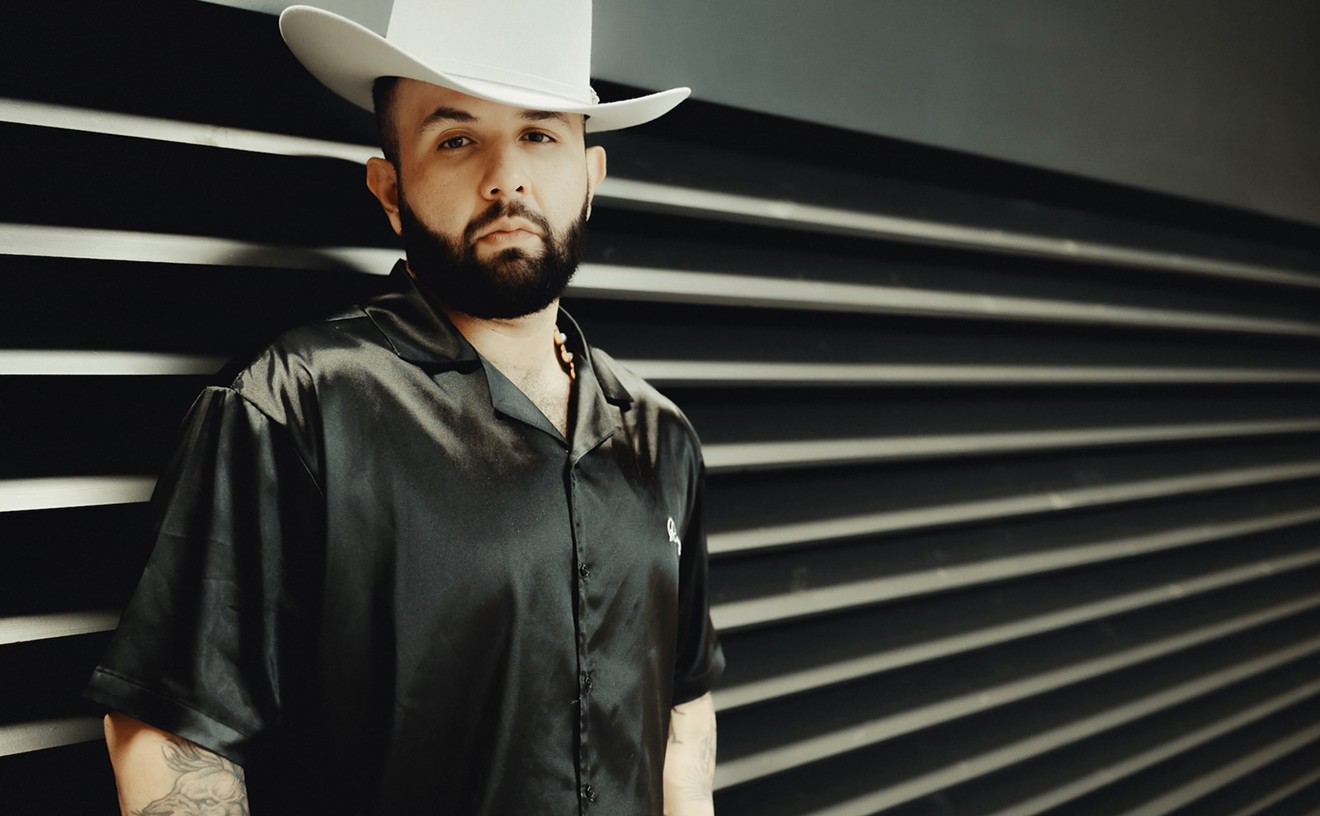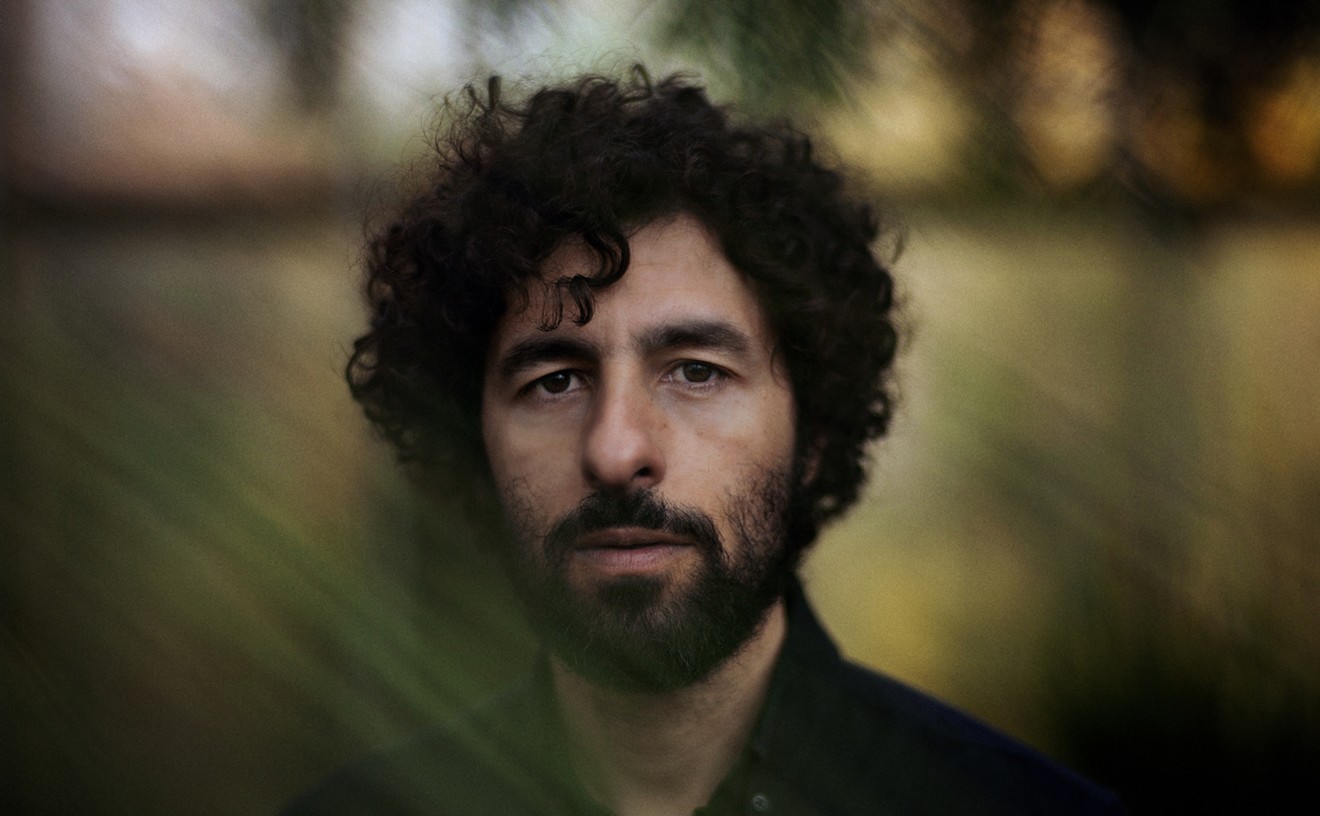The senior senor is madman Eddie Palmieri, making a rare appearance without his rhythm section, instead ivory dueling with the back-of-the-fridge cool Hilton Ruiz, one of the rightful heirs to Palmieri's bench. Two men, two pianos, too much.
In fact, this concert seems better suited to a dance hall (and a bottle of rum, or two) than to the venerable and posh Gusman Center. In what promises to be a high-volume jam of swings, patrons are warned to strap into those plush seats and hold on for dear life.
Neither of the two is averse to smashing the 88s with clenched fists to get a point across. Piano as percussion, no bass or drums necessary. "We'll be able to get it going without the rhythm section," Ruiz says from his New York apartment. "Think of it as an engine with different parts. The piano connects into the timbales, which connect into the conga, which connects into the bongos, which connect into...everything connects. A percussive instrument can work as a team, or by itself, incorporating all those parts. The piano is a percussive instrument. And the way we play it, it's very percussive. Especially Eddie."
Okay, so it's percussive, but what Palmieri and Ruiz do from there is about as easy to predict as a hurricane (and not dissimilar as far as sheer force is concerned).
Palmieri might start off with a classic tango or danz centsn, or maybe a meandering freeform intro incorporating elements of a classical fugue or jazz modal, not to mention assorted Cuban musical patterns. On some of his recordings, like the whimsical "Random Thoughts," he absently hums along, a la Glenn Gould or Keith Jarrett. And that's just an enchanting diversion before a high-voltage explosion, the descarga (discharge, a Latin musicians' term for jam session) of salsa sound, when the montuno chords and the pounding begin.
Like Ray Barreto and Johnny Pacheco, Palmieri is part of the first generation of American-born Latinos who've pushed the limits of tipico Latin music styles, fusing fundamentally Cuban rhythms with jazz to create what became the New York salsa sound. Following his older brother, Charlie, Eddie took up piano. Both achieved success, though in different styles. Charlie was controlled. Eddie, a.k.a. Pancho Rompeteclas (Jack the Keyboards Buster), was wild and experimental.
Palmieri's first band, the celebrated La Perfecta, had a flute and trombone frontline, placing emphasis on brass, now a standard for salsa orchestras. In 1971 he brought a black group called Harlem River Drive together with his band, combining salsa with rhythm and blues, the lyrics sung in English. Ever since, Palmieri has been one of the few salsa musicians to maintain a non-Latin following. Appealing to jazz aficionados for obvious reasons, his energy can escalate to the frenzy of a major rock-guitar solo.
Despite his crossover appeal, Palmieri's music is clearly rooted in the Afro-Cuban rhythms of Latin music. "Rosa Espa*ola" opens as a danz centsn with violin and French horns, includes a Puerto Rican danza, and adds in a Spanish chorus of the Beatles's "You Never Give Me Your Money" before winding up with a brassy montuno. Talk about a full plate.
The term "Spanish tinge" (or the updated "Latin tinge") has been used for the better part of the century to describe Latin jazz, Latin rock, and other American genres influenced by Latin music. "If you can't put tinges of Spanish in your tunes," Jelly Roll Morton once said, "you will never be able to get the right seasoning for jazz."
Sometimes it's a case of who's tinging who. "Eddie says it every day, he's not a jazz player," his wife (and manager) Aida cautions. Her husband was on tour in Europe last week, so Aida spoke for him. "He plays Latin music. But as a New Yorker you do have jazz influences."
Now respected as a jazz musician, Hilton Ruiz was playing with Latin orchestras when he heard Palmieri and was moved to move to the jazz side. He was something of a prodigy, studying classical piano, playing the Carnegie Recital Hall at age eight, later studying jazz with educator/arranger Mary Lou Williams. His salsa education was less upscale -- he learned in barrio clubs.
"Eddie Palmieri was a household name when I was growing up," Ruiz explains. "I'd go to the dance halls with my different girlfriends and see all the greats. When I saw Eddie, I realized he was different. He was one of the explorers, like Thelonious Monk."
Like Monk, Palmieri has been deemed a rebel by the industry. Famous for his disputes with record companies and managers, he's refused to promote albums such as Sueno and has simply walked away from the studio -- "Unfinished Masterpiece" had to be wrapped up by session musicians. As Monk was belatedly consecrated on the cover of Time magazine, Palmieri had to wait until 1975 to be awarded the first Grammy for a Latin musician. Four more followed. He's just finished recording a new album of Afro-Caribbean jazz, called Palmas, to be released in early 1994.
Ruiz has recently been in the studio with Tito Puente and has also completed a digital follow-up to his Manhattan Mambo.
He says that Saturday he and Palmieri will talk things over beforehand, then get up and jam. "There's going to be a battle up there," Aida Palmieri says nervously, sounding a little concerned that her husband might blow poor Ruiz off the stage.
But it's a safe bet Ruiz can take the heat. "There'll be a lot of fire to the rhythm," he says. "It's that decibel element that makes you want to get up and shake." Or hold on to your seats.
Eddie Palmieri and Hilton Ruiz perform at 8:00 p.m. on Saturday at Gusman Center for the Performing Arts, 174 E. Flagler St., 372-0925. Tickets cost from $15 to $35.










